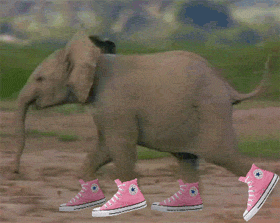Why subscribe?
We all need tools for how to cope with our dangerous climate reality and cultivate resilience in these times.
Humans are pushing on planetary limits and it is coming back to bite us as an enormous health threat. A growing field of research shows how the climate crisis and other forms of ecological degradation are putting pressure on our mental health, in unequally distributed ways. The age of eco-anxiety is upon us and climate-aware therapists are just a call away, meanwhile, the afterglow of climate disasters radiates traumatic psychiatric injuries throughout the globe. We need to get wise to what is happening and what we can do about it, so we don’t lose all our marbles. Consider this newsletter the clearing house for new, old, and emerging ideas to strengthen our emotional intelligence, psychological resilience, and mental health while we’re in this planetary pickle.
Subscribe to get full access to the newsletter and website. You’ll receive a mix of essays, expert Q and As, news and analysis.
Who is writing this?
I’m Britt Wray and I’m a climate and mental health researcher at Stanford School of Medicine and author of a book about the rise of eco-anxiety and other climate-related mental health issues called Generation Dread: Finding Purpose in an Age of Climate Crisis.
The backstory to the book and this newsletter is that in 2017, I became overrun with eco-anxiety and eco-grief when my partner and I started talking about trying to get pregnant. The process of confronting what scientific models say about the terrifying ecological track we’re on, matched with completely inadequate action from the political establishment, birthed a painful dilemma. I was suddenly overwhelmed, and because I’ve never had an anxiety disorder, also quite disoriented. Almost overnight, I’d turned into that annoying person who manages to bring up climate trauma in every discussion. And when I cried about the climate, it was real deep grief, like someone I loved had died. I also felt new levels of rage and scorn for people who didn’t seem to care about ecocide. My partner even had to ask me to put a time-out on how I was discussing the climate at home, because it was poisoning our home (read: I was like a living breathing version of David Wallace-Wells’ The Uninhabitable Earth - not fun!). These new feelings were, to say the least, interfering with my life and my relationships.
But then my science communicator brain kicked in, and I decided to study myself. What was really going on here? I started interviewing 100+ experts -- several types of scientists, psychologists, therapists, activists, journalists, artists, and philosophers -- to get to the bottom of my new disposition and how it fit in with wider global and social trends. What I’ve learned from those people has been life-changing. They helped me gain a deep understanding of why there is nothing pathological about feeling eco-anxious; how psychiatric trauma sets in after fast moving climate disasters and slower moving ecological events; how social injustice - the kernel of climate change - affects emotional wellbeing; what individuals can do to cope when the dark scientific data in their head takes over; why the secret sauce for emotional resilience lies in community ties; and what kinds of system overhaul are needed to climate-proof the mental health system.
I also developed a critical awareness of how my own white, middle-class, cis-gendered, and able-bodied privilege was fuelling my eco-anxiety. My lack of personal experience with existential threats meant I had a lower reserve of existential resilience to rely on. I’d have to learn to cultivate it, not least by centring the stories of communities that have always known how unsafe the world can be.
I’m no longer so rattled and am much more resolved about the need for complex systems change and how I can help bring it forth. The crushing feeling of powerlessness is gone and whenever the darkness returns, I know how to welcome it. It turns out, when it feels welcome, it never wants to stay. And as I watch more and more people - particularly young people - fall into the grips of hopelessness and helplessness that waking up to the climate and biodiversity emergency can cause, I’m eager to share what I’ve learned. A lot of those lessons are contained in my forthcoming book, and more will be served up here. So please subscribe and share this newsletter with someone who you think needs it.
This newsletter was a solo project from its inception in the summer of 2020 to January 2023, at which point the team grew to include the wonderful Sophie Kohn and Anis Annisa Maryam, who you can read about here, thanks to the support of the Raffi Foundation of Child Honouring.
Stay up-to-date
You won’t have to worry about missing anything. Every new edition of the newsletter goes directly to your inbox. You can expect a post from the team twice a month.
Join the crew
We are five motivated women who put this newsletter together, and doing so is an incredibly meaningful activity in our lives. Any reader pledges we receive will help us tremendously to build and expand on the work we do here, create new features to offer this community, and keep our message crescendoing into the next few crucial years for climate. We want to be clear: Gen Dread will always be free. But you do have the option to donate if it’s accessible to you and feels aligned with your values. Thank you so much for considering!



